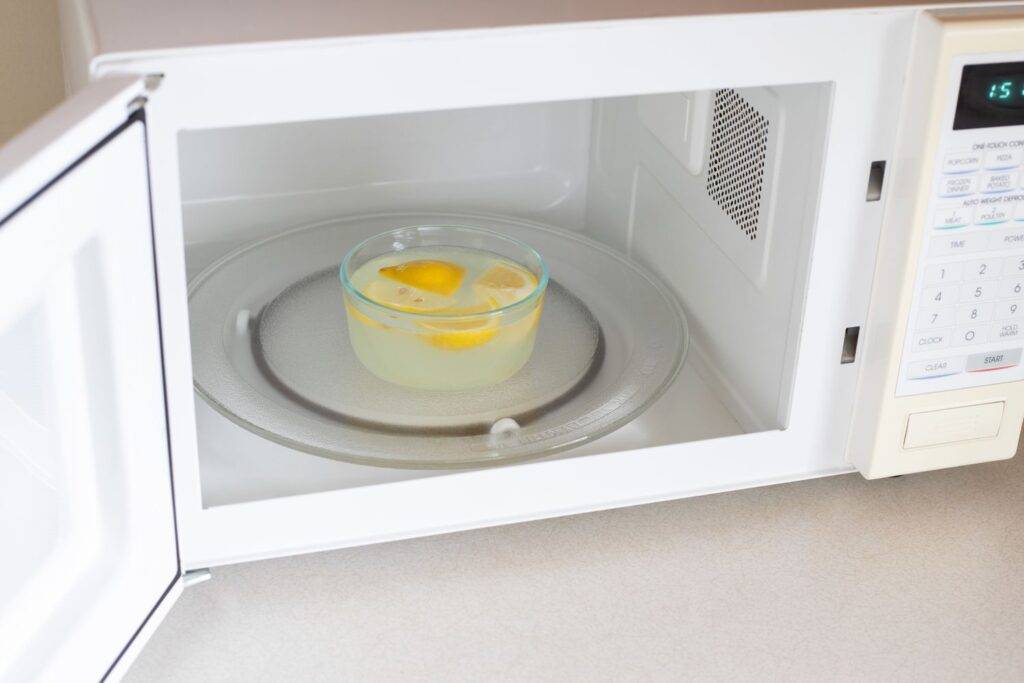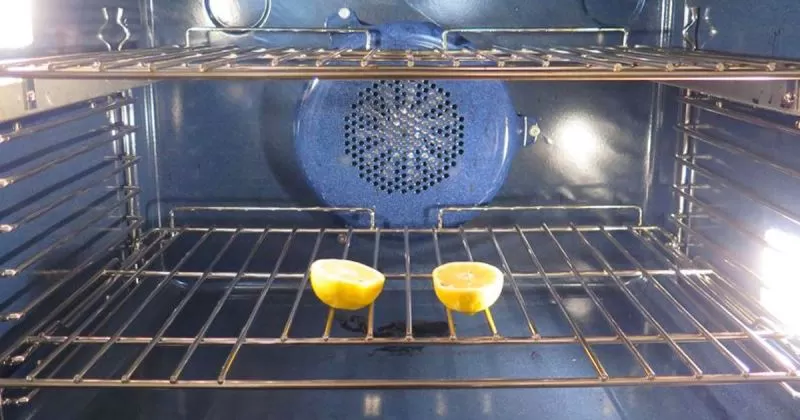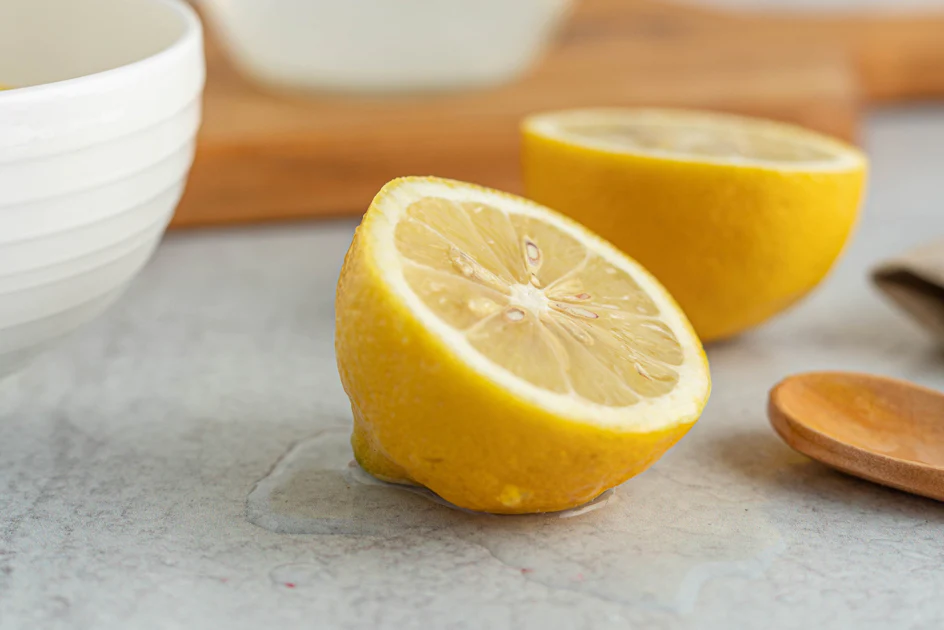Introduction
Cleaning your microwave and oven regularly is essential to ensure they remain in good working condition and free from germs and odours. While there are numerous cleaning products available in the market designed specifically for this purpose, most cleaning products on the market contain harsh chemicals that can be harmful to your health and the environment. It’s worth exploring natural alternatives that are not only effective but also safe for your health and the environment: the power of lemons.
One such versatile ingredient found in most households is the humble lemon. Lemons, with their natural acidity and refreshing scent, can be powerful allies in the battle against microwave and oven grime. Beyond their cleaning prowess, lemons are a very healthy fruit, offering numerous health benefits, including medicinal uses that have been valued in traditional remedies for their therapeutic properties.
Lemons are packed with essential nutrients and vitamins, including vitamin C, and are part of the broader citrus fruits family. Compared to other citrus fruits, lemons stand out for their unique sour taste and vibrant flavor profile. The Lisbon lemon is a popular variety, widely cultivated in Mediterranean countries and the Middle East.
The lemon tree (Citrus limon), which belongs to the Rutaceae family, is grown in warm climates around the world and is the source of lemons used for both culinary and commercial purposes. The sour taste of lemons comes from their high citric acid content, which gives them their distinctive flavor. Lemons also contain pectin, a type of fiber found in the pulp, and seeds, which are characteristic of citrus fruits.
In this comprehensive guide, we will unveil the power of lemons for cleaning microwaves and ovens. Join us as we explore the numerous benefits of using lemons for cleaning appliances, providing step-by-step instructions, tips, and safety considerations.
Discover how this humble citrus fruit can effortlessly transform your cleaning routine while leaving your microwave and oven sparkling clean and smelling delightful.
Table of Contents
The Power Of Lemons: Microwave Cleaning

Step 1: Gather Your Supplies
Before you begin, make sure you have the following supplies for cleaning your microwave oven:
-
Lemons: You will need a few fresh lemons for the cleaning process. Fresh lemons are not only great for cleaning but also rich in vitamin C, which offers additional health benefits.
-
Water: Prepare a bowl of water to mix with the lemon juice.
-
Microwave-safe bowl: Choose a microwave-safe bowl that will fit comfortably in your microwave oven.
-
Cleaning cloth or sponge: Have a clean cloth or sponge handy for wiping down surfaces.
-
Baking soda (optional)
Step 2: The Power Of Lemons Steam Clean
-
Slice the Lemon: Cut a lemon in half.
-
Squeeze Lemon Juice: Squeeze the juice from both lemon halves into a microwave-safe bowl.
-
Add Lemon Halves: Place the squeezed lemon halves into the bowl.
-
Add Water: Fill the bowl with water, leaving some space at the top. This mixture of water and lemon juice is similar to lemon water, a popular drink known for its health benefits, but this cleaning solution should not be consumed.
-
Microwave: Put the bowl in the microwave and set it on high for 3-5 minutes. The goal is to let the mixture come to a boil.
-
Let it Sit: Keep the microwave closed for an additional 5 minutes after it stops, allowing the steam to work its magic. The steam helps loosen food debris and grime, making it easier to wipe away.
-
Wipe Clean: Open the microwave, carefully remove the bowl (it will be hot), and wipe the interior with a damp cloth. The steam will have loosened any dried-on food particles, making them easy to clean.
For tougher stains, sprinkle some baking soda on a damp sponge and use it to scrub the area before wiping it down with the lemon solution.
While lemon water is a healthy drink often included in weight management and hydration routines, the lemon-based drinks or solution used for cleaning should always be discarded and not consumed. Using lemons for cleaning offers many health benefits by avoiding harsh chemicals.
Step 3: The Power Of Lemons Deodorizing Microwave
Microwaves are culinary workhorses and can occasionally carry unwanted odours from reheated meals. Unleash the power of lemon to transform your microwave into a fragrant oasis, making every reheating experience a delight for your senses.
With their natural deodorizing properties, lemons are the perfect, eco-friendly solution to eliminate unpleasant smells and infuse your microwave with a citrusy freshness. Incorporating lemons into your cleaning routine is part of a healthy diet and lifestyle, as they are a natural and safe alternative to chemical cleaners.
Beyond cleaning, lemons are also valued for enhancing the flavor of tea and baked goods, making them a versatile kitchen staple.
-
Wipe clean: Make sure to remove any loose debris or food particles. Give your microwave a quick wipe-down with a damp cloth to get rid of any surface dirt. This will ensure that the lemon can work its magic without any obstacles.
-
Slice the Lemon: Cut a lemon in half and place it cut-side down on the microwave plate.
-
Microwave: Heat the microwave for 1-2 minutes to release the lemon’s fresh scent and eliminate any lingering odours.
Tip: For tough stains or persistent odors, try using white vinegar as an alternative natural cleaning agent. Its acidity is highly effective at removing grime, grease, and disinfecting the microwave. Simply mix equal parts white vinegar and water in a microwave-safe bowl, heat for a few minutes, and then wipe down the interior for a cost-effective and powerful clean.
The Power Of Lemons: Oven Cleaning

Step 1: Have Your Lemon Juice and Citrusy Arsenal In Place
-
Lemons (a few fresh, high-quality lemons). Using fresh, quality lemon juice, like other fruit juices, is an effective and natural cleaning solution that helps preserve the authentic aroma and ensures the best cleaning results.
-
Water
-
Oven-safe dish
-
Cleaning cloth or sponge
-
Hand gloves
-
Baking soda (optional)
-
Vinegar (optional)
Step 2: Lemon-Powered Oven Cleaning
-
Create a lemon paste: Squeeze the juice of about three lemons into a spray bottle and add some water to dilute it. For smaller ovens or light cleaning, the juice of one lemon can be effective. Shake well to mix the solution until you achieve a spreadable consistency.
You can also use the lemon rind by grating or zesting it and adding it to the mixture for extra scrubbing power or to enhance the fragrance during oven cleaning.
-
Spray the lemon solution: Remove oven racks and spray the mixture generously all over the oven. Make sure to focus on the areas with stubborn stains and greasy spots. The acidic properties of lemons will help break down the grime and make it easier to remove.
-
Let it Sit: Let the lemon solution sit for at least 30 minutes to work its magic. The plant compounds in lemons contribute to their powerful cleaning properties.
-
Scrub Away: Grab a scrub brush or sponge and start scrubbing away. The natural acidity of lemons will help loosen the built-up grime, making it easier to remove. For tough stains, you can sprinkle some baking soda on top of the lemon solution before scrubbing. The combination of baking soda and lemon creates a powerful cleaning duo that can tackle even the most stubborn stains.
-
Wipe and Rinse: Wipe down the interior with a damp cloth to remove the lemon residue. Rinse with water or a vinegar-water solution to ensure no residue remains.
Using natural lemon-based cleaners ensures your oven is safe for cooking and eating, as there are no harsh chemicals left behind.
Step 3: Lemon Deodorizing Oven
Does your oven carry the lingering scent of past culinary adventures? Harness the natural deodorizing prowess of lemons to banish unwanted odours and infuse your kitchen with a zesty, citrusy fragrance. Similar to the microwave, you can use lemons to naturally deodorize your oven.
-
Wipe clean: Make sure to remove any loose debris or food particles. Give your oven a quick wipe-down with a damp cloth to get rid of any surface dirt. This will ensure that the lemon can work its magic without any obstacles.
-
Slice the Lemon: Cut a lemon in half and place it on the oven rack.
-
Bake It: Bake the lemon in the oven at 300°F (150°C) for 10-15 minutes. The lemon’s fresh scent will help to eliminate any lingering odours.
Tip: For best results, choose lemons with thinner skin, as they tend to be juicier and release a stronger scent during baking. If you want an extra burst of fragrance, add a few drops of lemon oil to the oven before baking.
Additionally, the natural properties of lemons not only deodorize your oven but also contribute to heart health when included in your diet.
Tips and tricks for maximizing the cleaning power of lemons
Enhancing the effectiveness of citric acid-based cleaning:
To enhance the cleaning power of lemons, you can create a paste by mixing lemon juice with baking soda. This paste can work wonders on greasy and stubborn stains. For extra stubborn stains, you can also leave the paste on the affected areas overnight before scrubbing it off the next day.
If you have particularly tough stains or buildup in your microwave or oven, you can also use vinegar in addition to the lemon solution. Simply mix equal parts of vinegar and water and follow the same steps outlined above.
Additionally, the natural properties of lemons can help protect against chronic conditions, making them a valuable addition to your cleaning routine.
Alternative methods for using lemons in microwave and oven cleaning:
If you don’t have fresh lemons on hand, you can use lemon essential oil mixed with water to create a cleaning solution. Simply add a few drops of lemon essential oil to a spray bottle filled with water and use it as you would with fresh lemon juice.
It’s a convenient alternative that still harnesses the power of lemons for effective cleaning. While other fruits can also be used for cleaning, lemons offer unique benefits that make them particularly effective.
The Benefits of Lemon-Powered Cleaning:
Natural Deodorizer:
Lemons’ natural citrus scent leaves your appliances smelling fresh and clean without the need for artificial fragrances.
Incorporating lemons into your cleaning routine is part of a healthy diet and lifestyle.
Grease-Cutting Power:
Lemon juice, combined with baking soda, acts as a natural degreaser, making it effective against oven grease and microwave splatters. Additionally, the natural properties of lemons not only cut grease but also contribute to heart health when included in your diet.
Environmentally Friendly:
Using lemons for cleaning reduces reliance on harsh chemicals, contributing to a more eco-friendly cleaning routine.
Additionally, the natural properties of lemons can help protect against chronic conditions, making them a valuable addition to your cleaning routine.
Cost-Effective Solution:
Lemons are readily available and budget-friendly, providing a cost-effective alternative to commercial cleaning products.
While other fruits can also be used for cleaning, lemons offer unique benefits that make them particularly effective.
Safe and Food-Safe:
Lemon-based cleaners are safe to use around food preparation areas. You can clean and cook with confidence. Additionally, the citric acid in lemons can help prevent kidney stones, adding to their many health benefits.
Enjoyable Cleaning Experience:
The pleasant aroma of lemons adds a touch of enjoyment to the cleaning process, making it a sensory experience.
The natural properties of lemons can also aid in weight control and weight loss, making them a versatile addition to your household.
Conclusion
Lemons offer a natural, cost-effective, and eco-friendly solution for keeping your microwave and oven clean and fresh. Harness the power of lemons to avoid harsh chemicals and enjoy a naturally clean kitchen.
Use lemons to transform your kitchen appliances and create a delightful cleaning routine that removes grime and leaves a citrus scent. For deeper cleaning needs, professional services like Weschoon provide thorough, eco-friendly appliance cleaning.
Lemons not only clean effectively but also promote health benefits such as antioxidants, digestion aid, kidney stone prevention, immune support, and even show anticancer potential due to plant compounds found in citrus fruits, as suggested by observational studies. Combine natural lemon cleaning with professional care for a sparkling, healthy kitchen.
FAQ
Most frequent questions and answers for lemon-powered cleaning
Yes, lemon juice can be effective for cleaning microwaves and ovens if it is pure and free of additives like sugar or preservatives. However, fresh lemons are generally preferred because their natural acidity provides the best cleaning power.
Absolutely! Lemon peels contain essential oils and natural citric acid that help remove stains and freshen your microwave and oven. You can rub the inside of a lemon peel on surfaces to tackle stubborn grime or microwave a bowl of water with lemon peels for a few minutes to eliminate odors. Lemon peels are a great addition to your natural cleaning toolkit.
Yes, avoid using lemons on marble or other sensitive natural stones, as the acidity can cause damage or etching. Also, do not use lemons on aluminum, since the acid may react with the metal. Always test lemon-based cleaning solutions on a small, hidden area first to ensure they won’t harm the surface.
Before cleaning, make sure your microwave or oven is unplugged and completely cool. Wear gloves to protect your hands and avoid contact with your eyes or any open cuts. Be careful to prevent lemon juice or cleaning solutions from dripping into electrical components. Following these precautions will help you clean safely and effectively.







